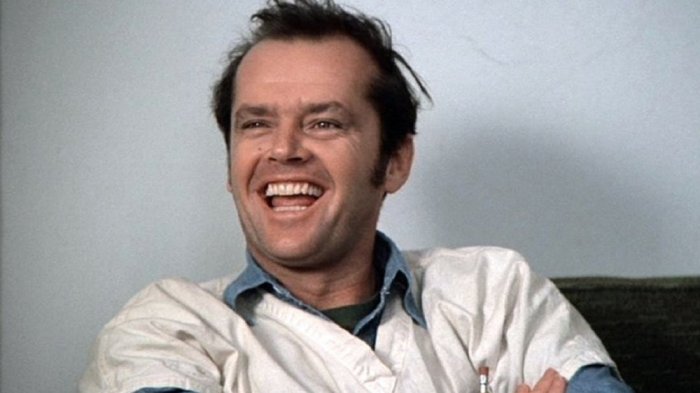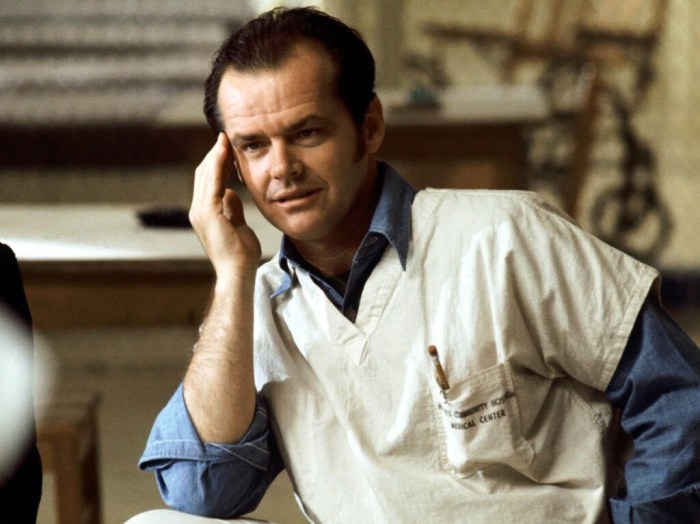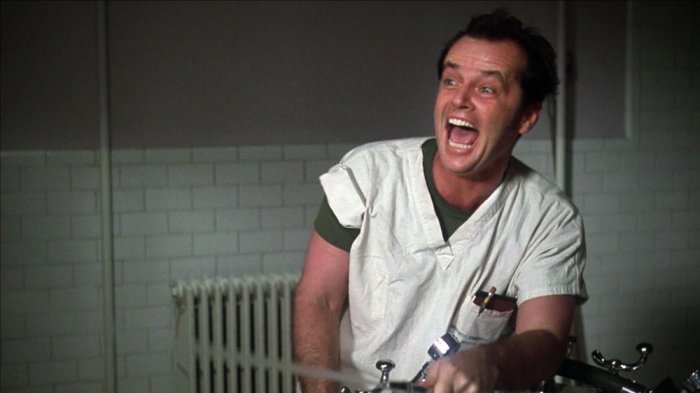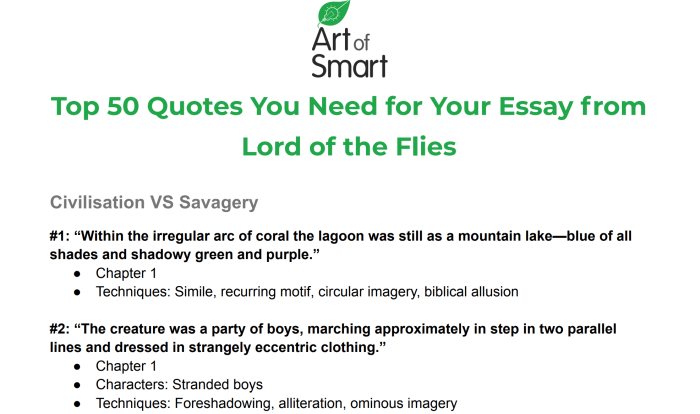One flew over the cuckoos nest quotes – As “One Flew Over the Cuckoo’s Nest” quotes take center stage, this discourse delves into the profound depths of this literary masterpiece, unraveling its intricate themes, character complexities, and enduring impact on readers.
Through a comprehensive analysis of the novel’s iconic quotes, we embark on a journey that illuminates the struggles of mental illness, the clash between individuality and conformity, and the complexities of power and authority.
Overview of “One Flew Over the Cuckoo’s Nest” Quotes
Ken Kesey’s “One Flew Over the Cuckoo’s Nest” is a seminal novel that delves into the complexities of mental illness, societal treatment, and the struggle for individuality. The novel’s impact is amplified by the powerful quotes spoken by its characters, which offer insights into their motivations, the themes of the novel, and the human condition.
The significance of quotes in “One Flew Over the Cuckoo’s Nest” lies in their ability to reveal the characters’ inner thoughts and emotions, which are often hidden beneath the surface. These quotes provide a window into the characters’ struggles, their fears, and their hopes.
Exploration of Major Themes
The quotes in “One Flew Over the Cuckoo’s Nest” explore a range of significant themes, including:
- Mental illness and societal treatment:The novel challenges societal perceptions of mental illness and highlights the inhumane treatment often faced by those with mental health issues.
- Individuality vs. conformity:The novel explores the tension between individual expression and the pressures to conform to societal norms. Randle McMurphy’s rebellion against Nurse Ratched represents the struggle to maintain one’s identity in the face of oppressive authority.
- Power and authority:The novel examines the dynamics of power and authority, particularly within institutions like mental hospitals. Nurse Ratched’s tyrannical rule over the ward represents the abuse of power and its corrosive effects on both the individual and society.
Character Analysis through Quotes
The quotes spoken by specific characters in “One Flew Over the Cuckoo’s Nest” provide insights into their personalities and motivations:
- Randle McMurphy:McMurphy’s rebellious nature and challenge to authority are evident in quotes such as, “You’re out of your mind if you think I’m gonna let you cut on my brain.” His defiance represents the fight for individuality against oppressive forces.
- Chief Bromden:Bromden’s silent observation and eventual awakening are expressed through quotes such as, “I been watching you, McMurphy. You’re crazy as the rest of us.” His words reveal his understanding of the system’s flaws and his own journey toward self-discovery.
- Nurse Ratched:Ratched’s oppressive control and manipulation are evident in quotes such as, “I will not tolerate any disrespect in this ward.” Her words reflect her authoritarian nature and her determination to maintain order, even at the expense of individual freedom.
Impact on Readers
The quotes from “One Flew Over the Cuckoo’s Nest” resonate with readers on a personal level, as they explore universal themes of individuality, freedom, and the struggle against oppression.
The novel’s quotes provoke emotional and psychological responses, such as anger, sadness, and hope. They challenge readers to confront their own beliefs and values, and to question the societal norms that may be unjust or harmful.
Literary Techniques: One Flew Over The Cuckoos Nest Quotes

Kesey employs a range of literary techniques in the quotes from “One Flew Over the Cuckoo’s Nest,” including:
- Symbolism:Objects and events in the novel often carry symbolic meaning, such as the fog that represents the oppressive atmosphere of the ward and the forest that symbolizes freedom.
- Irony:The novel uses irony to highlight the contradictions and absurdities of the mental health system, such as when Nurse Ratched claims to be helping patients while actually suppressing their individuality.
- Figurative language:Kesey uses metaphors, similes, and other figurative devices to create vivid and memorable images, such as when he describes the patients as “zombies” or “vegetables.”
Comparison to Other Works

The quotes from “One Flew Over the Cuckoo’s Nest” can be compared to those from other literary works that explore similar themes, such as:
- “The Catcher in the Rye” by J.D. Salinger:Both novels feature rebellious protagonists who challenge societal norms and struggle with the pressures of conformity.
- “Brave New World” by Aldous Huxley:Both novels explore the dangers of oppressive authority and the importance of individual freedom.
- “The Great Gatsby” by F. Scott Fitzgerald:Both novels examine the American Dream and its corrosive effects on the individual.
Cultural and Historical Context

“One Flew Over the Cuckoo’s Nest” was written during a time of significant social and political upheaval in the United States, including the Vietnam War and the Civil Rights Movement.
The novel’s quotes reflect the countercultural values of the time, such as the rejection of authority, the celebration of individuality, and the fight for social justice.
FAQ Insights
What is the significance of the quotes in “One Flew Over the Cuckoo’s Nest”?
The quotes in the novel serve as powerful vehicles for characterization, theme exploration, and emotional resonance, providing profound insights into the characters’ motivations, the novel’s central themes, and its impact on readers.
How does the novel explore the theme of mental illness?
Through the experiences of Randle McMurphy and Chief Bromden, the novel delves into the complexities of mental illness, challenging societal perceptions and highlighting the struggles faced by those suffering from mental health issues.
What is the role of Nurse Ratched in the novel?
Nurse Ratched embodies the oppressive forces of authority and conformity, representing the institutionalized power that seeks to suppress individuality and maintain control over the patients.


